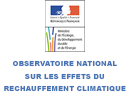Mutualism and the Impacts of Global Changes: The Responses of a Major and Neglected Component of Biodiversity
Mutualism and the Impacts of Global Changes: The Responses of a Major and Neglected Component of Biodiversity
Out of the potential ecological impacts of global change, their impacts on the workings of inter-species interactions remain one of the most significant unknowns. The lack of data is particularly striking as regards mutualisms, ligneous plants and tropical ecosystems. Because each species responds to change individually, global changes can lead to the uncoupling of the players in an interaction, or even to a break in the interaction. In the event where there is diffuse interaction (non-specific), the ecological redundancy in the roles of different species confers stability upon the situation. In contrast, when there is specific and mandatory mutualism, the lack of ecological redundancy implies greater risk of a break in interaction and, consequently, a decrease in biodiversity.
The authors studied the impact of global changes on three specific and mandatory plant-insect mutualisms offering contrasting biology and natural history. All of their biological models involve ligneous plants, and most of them belong to tropical ecosystems. Our project combines correlative and experimental approaches, and is based on the comparison between three contrasting systems, implying diversity in change impact mechanisms.
They studied the responses of systems to past climate change and current change, which is deeper and more varied. Using hypervariable molecular markers, we will study phylogeography to identify the history of each system when faced with past change and the role of that history, by structuring the populations of each species involved and by conditioning the contemporaneous ecology of each system. The markers will also enable us to analyse the response of the said associations to global changes.
The experiment’s approach, focused on the response of partner plants to an increase in CO2, will attempt to respond to a basic question: what effects will the increase in CO2 have on the production and quality of resources offered as reward to insect partners and will these effects make it possible for the said mutualisms to survive? The findings, based on a comparative approach, have made it possible to develop an early understanding of how an important component in biodiversity – species mutualism – responds in tropical environments.
| Coordinators |
Martine Hossaert-McKey, CNRS – CEFE |
| Partnership |
CNRS – CEFE |
| Funding |
MEDD
|
| Budget |
50 000€ (including tax)
|




